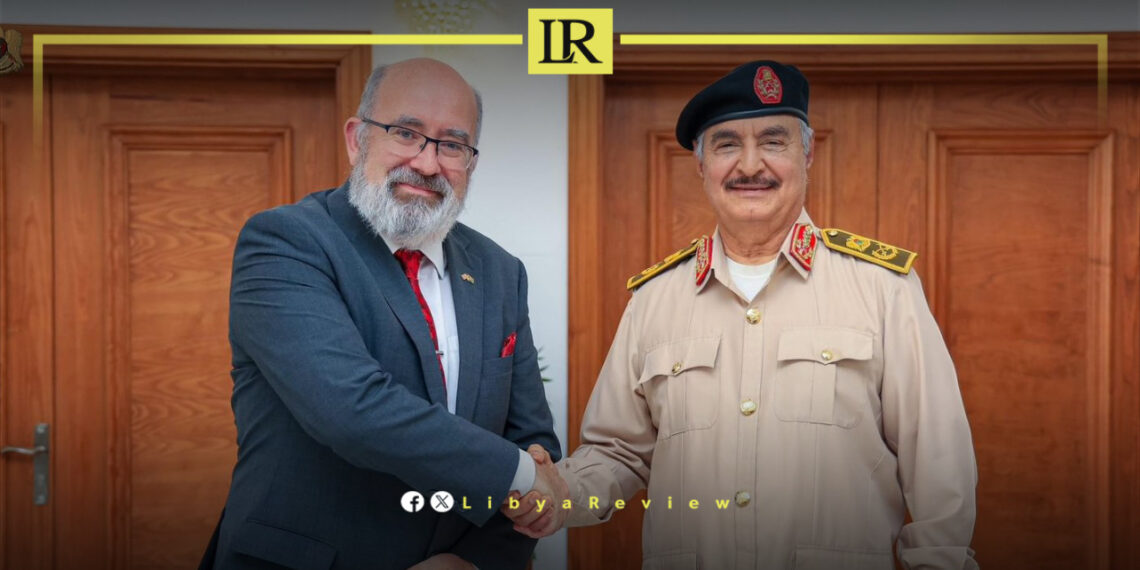Field Marshal Khalifa Haftar, the Commander-in-Chief of the Libyan National Army (LNA), discussed the latest political developments in Libya with the United Kingdom’s Ambassador to Libya, Martin Longden. The meeting took place on Tuesday at the LNA’s headquarters in Rajma.
The LNA said in a statement that Haftar and Longden discussed ways to create the appropriate conditions for conducting presidential and parliamentary elections.
The British ambassador praised the role of the LNA in restoring security and supporting stability in Libya, according to the statement.
Haftar expressed his gratitude to the United Kingdom for its support of the political process in Libya, which aims to fulfill the aspirations of the Libyan people for elections and achieve lasting stability.
Earlier, Haftar expressed his full support for the United Nations’ efforts to conduct presidential and parliamentary elections in Libya, aiming to achieve long-term stability in the country.
During a meeting with Longdon, in March, Hafter and the British Ambassador underscored the international and local commitment to moving Libya towards a stable and democratic future.
According to the media office of the Libyan Armed Forces, the discussions revolved around the latest developments on the Libyan political scene and explored ways to enhance cooperation between Libya and the United Kingdom.
The commitment of both Libyan and international figures to the electoral process is seen as a crucial step towards resolving the prolonged conflict in Libya.
Libya has been in chaos since a NATO-backed uprising toppled longtime leader Muammar Gaddafi in 2011. The county has for years been split between rival administrations.
Libya’s economy, heavily reliant on oil, has suffered due to the ongoing conflict. The instability has led to fluctuations in oil production and prices, impacting the global oil market and Libya’s economy.
The conflict has led to a significant humanitarian crisis in Libya, with thousands of people killed, and many more displaced. Migrants and refugees using Libya as a transit point to Europe have also faced dire conditions.


